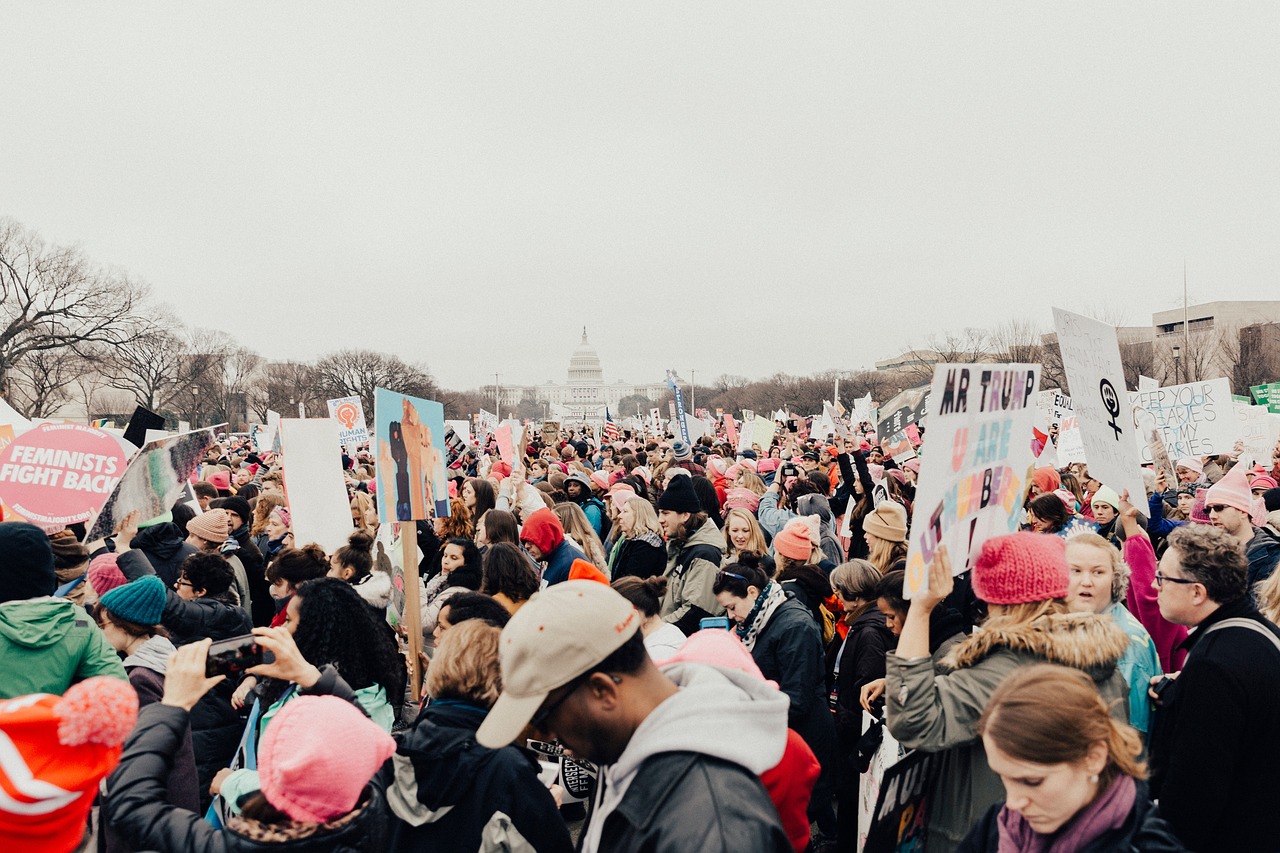It’s 2020. In the rear-view mirror is an exciting decade, wherein the feminist movement gained more mainstream media representation than ever before. In the last decade, many male celebrities have proudly self-identified as feminists, from the likes of our beloved Prince Harry, Duke of Sussex, to Will Smith, John Legend and even tennis-player Andy Murray. Despite this progress, the majority of men remain unwilling to self-identify as ‘feminists’… not because they are opposed to gender equality, but because they simply ‘don’t see’ themselves as being feminists. According to a 2015 survey carried out by YouGov, 81% of British men believed that men and women should be equal. Yet, only 27% of them identified as feminists, despite the definition of a ‘feminist’ as ‘someone who advocates for gender equality’. This begs the question: what misconceptions do men have about feminism? And, more importantly, how has this put them off joining the fight for gender equality?
In contemporary society, our perception of a feminist has been dominated by the image of a male-bashing, bra-burning, armpit-hair-growing radical feminist who dreams of a world without men. An image by which even women have been guilty of being misled. For instance, Dr Christina Scharff, senior lecturer in Culture, Media and Creative Industries at King’s College London, interviewed a diverse group of young German and British women. Scharff discovered that they associated the term “feminism” with “man-hating, lesbianism or lack of femininity”, which influenced their rejection of the label “feminist”. If such misconceptions prevent women from identifying as feminists, one can only imagine the negative connotations some men associate with feminism. The British public were able to get a glimpse of this reality in the second episode of Reggie Yates’ BBC Three documentary series Extreme UK, where Yates shed light on the existence of the ‘manosphere’ – an underground online community of men who harass feminists and circulate anti-feminist views and misogynistic propaganda. Given the perceptions that these men had of feminism as having ‘gone too far’ and silenced the voices of men, it is apparent that there are men who misconceive the movement as a personal threat to their autonomy, rather than a threat to the patriarchal system.
The feminisation of the language surrounding the fight for gender equality also seems to factor into men’s resistance to identifying as feminists. The word ‘feminist’ derives from the Latin word ‘femina’, meaning ‘woman’, which inherently creates a false impression: that feminism has been produced exclusively for women, by women. Whereas, in reality, the feminist movement is concerned with issues which directly impact the lives of men, such as insufficient paternity leave and men’s high suicide rates. Nevertheless, the label ‘feminist’ seems to either threaten to make men feel emasculated and ‘feminine’; or men perceive themselves as outsiders in the struggle for gender equality. One example of this is Bisi Alimi, a Nigerian gay rights activist and the first-ever Nigerian to ‘come out of the closet’ on national television. In an interview with Quartz at Work, when asked if he identifies as a feminist, he refused, and referred to himself as a “fem-ally”. He stated that he “doesn’t think men should [call themselves] feminists”, since “[they] represent everything that led to the feminist movement in the first place” and, therefore, should no longer “want to still occupy that space”. Nevertheless, Bisi advocates for gender equality and “[believes] in being a responsible ally to women’s struggles”, demonstrating that some men may support gender equality, yet actively choose not to identify as feminists to avoid overshadowing the voice of women.
One reason why men of colour, in particular, may struggle to align themselves with Western feminism is the movement’s failure to acknowledge the ‘intersections’ – the racial and class disparities – between all women. In an interview with a black male friend, he voiced that he actively refrains from calling himself a ‘feminist’ because modern-day feminism is ‘whitewashed’. He criticised, for example, the abundance of media attention focused on minor gender disparities in pay between white men and women in middle-class professions. In contrast, issues such as high maternal mortality rates, Female Genital Mutilation and honour-killings, which affect mainly women of colour (especially in the ‘global south’ – Africa, Asia, South America) are often denied a platform in mainstream media. Historically, white women have always been presented as the face of the feminist movement. For example, according to Gwendolyn Pough, a professor in the Women and Gender Studies Department at Syracuse University, the US Women’s Suffrage Movement was “really about getting the white women the right to vote”, and “when it came down between patriarchy and sisterhood, they chose patriarchy”. Essentially, when white women were forced to reckon with the intersection of their race and gender, they chose white privilege over female solidarity, setting the stage for future decades of racial exclusion within the US feminist movement. Ultimately, the journey to today’s ‘third-wave’ feminism has been rife with racial disharmony. So, it’s no surprise that a 2018 survey carried out by GenForward, revealed that 75% of all the women polled said the feminist movement has done “a lot” to improve the lives of white women, in comparison to only 60% who thought it had also achieved much for women of colour. By failing to adopt an ‘intersectional’ approach in its analysis of the female experience, the feminist movement creates the illusion that whitewashed, Eurocentric feminism is a rose-tinted, one-size-fits-all solution to gender inequality for all women—a misconstruction which seems to influence men of colour to dissociate themselves from the feminist label further.
Without a doubt, there will always be men who loathe the prospect of gender equality. However, the silver lining is that the majority of men seem to support it, even if they can’t bring themselves to reconcile with the label ‘feminist’. After all, when there are so many societal misconceptions of who is, can and should be a feminist, how can men reach a consensus on whether or not to identify as ‘feminists’?
Estelle Uba

